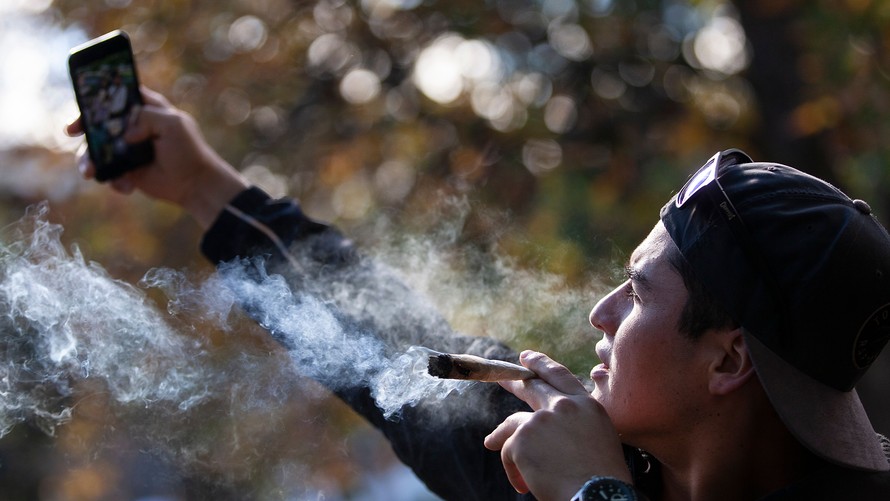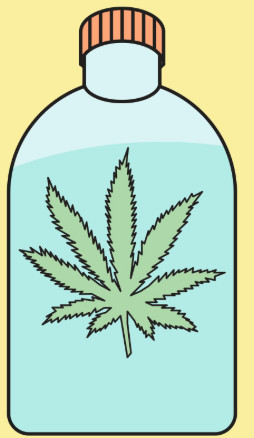PHOENIX — A Lake Havasu City senator figures it’s the state’s obligation to ensure medical-marijuana buyers are getting a safe product that’s as strong as advertised.
His proposal to have the state inspect growing facilities — and to reduce fees for medical-marijuana users — already has the support of more than three-fourths of the Legislature.
Republican Sen. Sonny Borrelli says he’s still not convinced that marijuana has any legitimate medical uses. But he notes that voters approved legalizing the drug for medical uses in 2010 and more than 150,000 Arizonans have state permission to buy and use it.
Borrelli wants the plants tested to see what operators are using on them. “It’s the Wild West,” he said of current marijuana regulation, which has no rules on pesticides and other chemicals being used on the plants.
For example, he cited a fungicide marketed as “Eagle 20.” Borrelli said federal regulations prohibit its use on tobacco “because it’s a heavy carcinogen.”
But federal rules are silent about its use on marijuana.
“I think the person that’s buying that stuff, they need to know there’s a heavy carcinogen in there,” Borrelli said. “If you’re a cancer patient, would you want to be taking medicine that could make you even sicker?”
His legislation wouldn’t ban any specific chemical. But it would require that when the marijuana is sold at the dispensary, buyers are made aware a chemical was used in the production.
“I want to concentrate on customer safety,” he said.
Moldy marijuana is a slightly different question. Borrelli said he’s been told it can be treated to get rid of any fungus rather than retailers having to toss out the plants entirely. At that point it can be offered for sale, but he wants buyers to have information on how it was treated.
Borrelli’s legislation also has what might be considered a consumer fraud provision, to make sure medical marijuana has the level of psychoactive THC that buyers are promised.
“If they’re going to advertise there’s 20 percent THC and it’s only 5 percent, they need to relabel it,” he said.
If approved, the measure would have another benefit for medical-marijuana users: More cash in their pockets.
The original 2010 voter-approved legislation authorized the Department of Health Services to charge fees to cover costs of administering the program. The law bars the proceeds from being used for anything else.
The agency charges patients $150 for one of the cards, a fee that has to be paid every year.
“It’s kind of hard to justify when they’re sitting on $40 million,” Borrelli said.
Health director Cara Christ has declined requests to lower the fees, even in the face of a lawsuit by medical-marijuana users over the program being run with a huge surplus.
SB 1420 would lower the fee to $100 for the first year and $50 for renewals.
His legislation also would give $2 million out of that account to the Agriculture Department to start its inspection program.
“In principle, additional safeguards that prevent contamination with molds and pesticides is something we support,” said spokesman Morgan Fox, adding that he wants to ensure they are “not too onerous for caregivers in practice.”
He wants to review it further before taking a position. “I’m particularly curious to see if there would be additional or unintended requirements or restrictions that come with medical marijuana being defined as an agricultural commodity,” Fox said.
It also appears to have the cautious support of Maricopa County Attorney Bill Montgomery, who has waged unsuccessful efforts to have the Arizona initiative voided because federal law still makes possession of the drug a felony.
“Unless and until the federal government takes action we have an obligation to ensure the Arizona Medical Marijuana Act is truly operated as a system for people who have a medical basis for using marijuana,” he said.
“Replicating the protections the users of any other type of medicine would have is a reasonable and responsible course of action.”
Because the Arizona Medical Marijuana Act was enacted by voters, it can be amended only with a three-fourths vote of both the House and Senate.
Borrelli is moving to get that margin, as he’s already gotten another 78 of the state’s 90 lawmakers to sign on in support of his bill, including Senate President Steve Yarbrough and House Speaker J.D. Mesnard.
But it also would have to get past the desk of Gov. Doug Ducey, who said as recently as last week he has seen no evidence marijuana has legitimate medical uses.
credit:tucson.com













